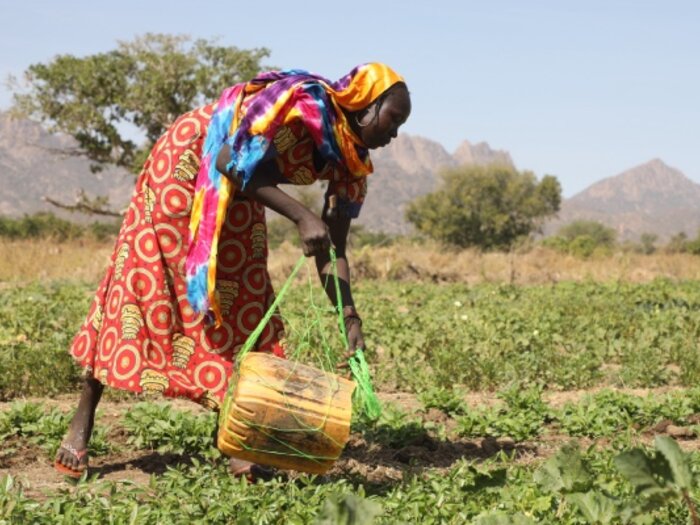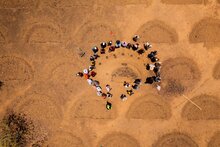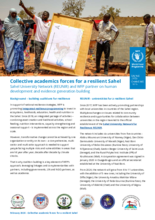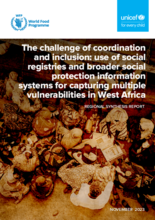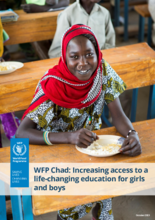Chad
- 3.4 million
- projected to face acute hunger during lean season
- 1.7 million
- acute malnourished children aged 6 to 59 months
- 1.15 million
- refugees
Chad is a landlocked Sahelian country in central Africa, with one of the highest levels of hunger in the world – 42 percent of its population live below the poverty line.
High food prices, below-average market supplies, continued disruption of cross-border trade in the east – due to the conflict in Sudan – and the impact of climate shocks have contributed to worsening hunger and poverty in the country.
A total 3.4 million people are projected to be acutely food insecure for the coming June-August lean season – the highest level of severe food insecurity ever recorded for the country and a staggering 240 percent increase since 2020.
Chad is host to more than 1 million refugees – one of the largest and fastest-growing refugee populations in Africa. The recent conflict in neighbouring Sudan has driven hundreds of thousands more across the border.
Serious funding shortfalls and resources redirected to the refugee crisis in the East mean that internally displaced people in Lake Chad – where over 200,000 are located – and most refugees from Cameroon, Central African Republic and Nigeria have not received any assistance for months. WFP is warning of a looming halt to food assistance to over 1 million crisis-affected people due to funding shortfalls.
The World Food Programme focuses on life-saving emergency activities and strengthening the country’s long-term resilience. In our mission to end food insecurity and malnutrition, we continue to work alongside the Government and other UN agencies and partners.
What the World Food Programme is doing in Chad
-
Food assistance
-
WFP plans to assist 2.5 million people throughout the country including refugees, IDPs, returnees and other vulnerable people. We aim to reach 1 million people with food, cash and nutrition support from June to August 2024, to help offset the impact of the lean season. Food and cash-based assistance will also be provided to people affected by sudden-onset emergencies such as floods.
-
Nutrition
-
WFP aims to support 1.4 million pregnant and breastfeeding women, and children aged 6-59 months, with malnutrition treatment and preventive measures including nutrition education.
-
School meals
-
WFP plans to provide nutritious school meals to 420,360 schoolchildren in 2024. The programme helps keep girls in school, as well as preventing early marriage and early pregnancy. The average pass-rate for girls in WFP-assisted schools is 2.5 higher than the national average.
-
Asset creation and livelihoods
-
WFP is working with UNHCR, the Government and partners to implement the Haguina initiative, which involves the rehabilitation of 100,000 hectares of agricultural and pastoral land across the east and south over five years. The goal is to achieve self-sufficiency for 500,000 farmers and herders among pre-existing refugees and host communities.
-
Social protection
-
WFP is supporting the implementation of Chad’s National Social Protection Strategy (2024-2028), with a focus on strengthening the Unified Social Registry – a database of vulnerable people that can improve rapid targeting.
-
Logistics
-
WFP continues to manage the critical United Nations Humanitarian Air Service, serving 19 destinations throughout the country with 4 fixed-wing aircraft. In 2023, 122 humanitarian organizations and over 25,390 passengers used the service.
Chad news releases
Go to pagePartners and donors
Find out more about the state of food security in Chad
Visit the food security analysis pageContacts
Office
BP 6308, Programme Alimentaire Mondial, Quartier Béguinage, îlot Q, lot 2, TF n° 1159, croisement de l’avenue Galmai Youssoubomi
N'Djamena
Chad

